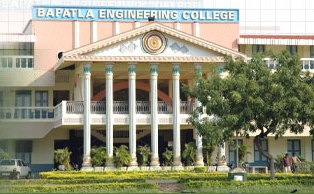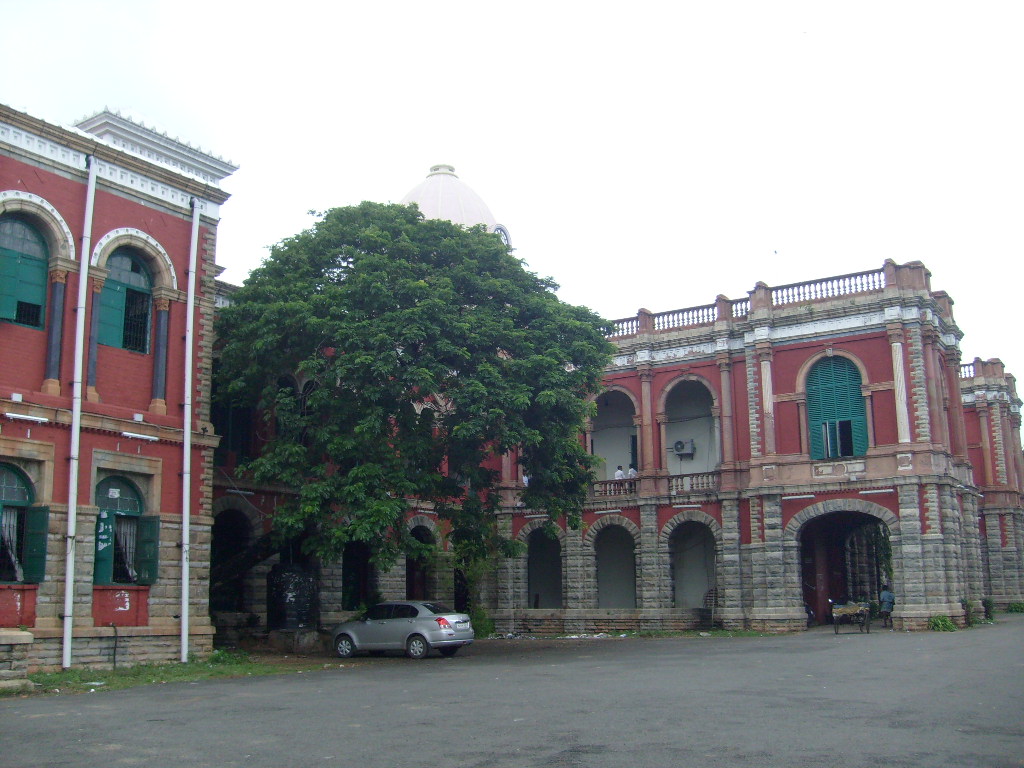|
Komaravolu S. Chandrasekharan
Komaravolu Chandrasekharan (21 November 1920 – 13 April 2017) was a professor at ETH Zurich and a founding faculty member of School of Mathematics, Tata Institute of Fundamental Research (TIFR). He is known for his work in number theory and summability. He received the Padma Shri, the Shanti Swarup Bhatnagar Award, and the Ramanujan Medal, and he was an honorary fellow of TIFR. He was president of the International Mathematical Union (IMU) from 1971 to 1974. Biography Chandrasekharan was born on 21 November 1920 in Machilipatnam, Andhra Pradesh. Chandrasekharan completed his high school from Bapatla village in Guntur from Andhra Pradesh. He completed M.A. in mathematics from the Presidency College, Chennai and a PhD from the Department of Mathematics, University of Madras in 1942, under the supervision of K. Ananda Rau. When Chandrasekharan was with the Institute for Advanced Study, Princeton, US, Homi Bhabha invited Chandrashekharan to join the School of Math ... [...More Info...] [...Related Items...] OR: [Wikipedia] [Google] [Baidu] |
Bapatla
Bapatla is a city and District headquarters of Bapatla district in the States and union territories of India, Indian state of Andhra Pradesh. It is a municipality and the mandal headquarters of Bapatla mandal of Bapatla revenue division. The nearest towns and cities to Bapatla are Chirala, Ponnur, Tenali and Guntur of 17 km, 22 km, 50 km and 53 km respectively. Etymology The town was formerly known as ''Bhavapattana'', ''Bhavapuri'', ''Bhavapattu'' and ''Bhavapatta''. The names were derived from the Bhavanarayana Temple located in the town. Later, these names were transformed to the present name of Bapatla. The temple was constructed in 1465 by a chola king named Krimikantha Chola, and was later restored. Geography The coordinates of the town are and is located at an altitude of 8 mts from the coast of Bay of Bengal. Climate The town experiences tropical climate with the average annual temperatures records at . Hot summers and cool winters a ... [...More Info...] [...Related Items...] OR: [Wikipedia] [Google] [Baidu] |
Number Theory
Number theory (or arithmetic or higher arithmetic in older usage) is a branch of pure mathematics devoted primarily to the study of the integers and arithmetic function, integer-valued functions. German mathematician Carl Friedrich Gauss (1777–1855) said, "Mathematics is the queen of the sciences—and number theory is the queen of mathematics."German original: "Die Mathematik ist die Königin der Wissenschaften, und die Arithmetik ist die Königin der Mathematik." Number theorists study prime numbers as well as the properties of mathematical objects made out of integers (for example, rational numbers) or defined as generalizations of the integers (for example, algebraic integers). Integers can be considered either in themselves or as solutions to equations (Diophantine geometry). Questions in number theory are often best understood through the study of Complex analysis, analytical objects (for example, the Riemann zeta function) that encode properties of the integers, primes ... [...More Info...] [...Related Items...] OR: [Wikipedia] [Google] [Baidu] |
People From Andhra Pradesh
A person ( : people) is a being that has certain capacities or attributes such as reason, morality, consciousness or self-consciousness, and being a part of a culturally established form of social relations such as kinship, ownership of property, or legal responsibility. The defining features of personhood and, consequently, what makes a person count as a person, differ widely among cultures and contexts. In addition to the question of personhood, of what makes a being count as a person to begin with, there are further questions about personal identity and self: both about what makes any particular person that particular person instead of another, and about what makes a person at one time the same person as they were or will be at another time despite any intervening changes. The plural form "people" is often used to refer to an entire nation or ethnic group (as in "a people"), and this was the original meaning of the word; it subsequently acquired its use as a plural form of ... [...More Info...] [...Related Items...] OR: [Wikipedia] [Google] [Baidu] |
Telugu People
Telugu people ( te, తెలుగువారు, Teluguvāru), or Telugus, or Telugu vaaru, are the largest of the four major Dravidian ethnolinguistic groups in terms of population. Telugus are native to the Indian states of Andhra Pradesh, Telangana and the Yanam district of Puducherry. A significant number of Telugus also reside in the surrounding Indian states of Karnataka, Tamil Nadu, Maharashtra, Gujarat, West Bengal, Chhattisgarh, Kerala, and Odisha, as well in the union territory of Andaman and Nicobar Islands. Telugus claim descent from the Andhras, from whom the Telugus inherit their ethnonym. Telugu is the fourth most spoken language in India and the 15th most spoken language in the world. Andhra was mentioned in the Sanskrit epics such as Aitareya Brahmana (by some estimates c. 800 BCE). According to Aitareya Brahmana of the Rigveda, the Andhras left North India from the banks of river Yamuna and migrated to South India. They are mentioned at the time of the d ... [...More Info...] [...Related Items...] OR: [Wikipedia] [Google] [Baidu] |
Salomon Bochner
Salomon Bochner (20 August 1899 – 2 May 1982) was an Austrian mathematician, known for work in mathematical analysis, probability theory and differential geometry. Life He was born into a Jewish family in Podgórze (near Kraków), then Austria-Hungary, now Poland. Fearful of a Russian invasion in Galicia at the beginning of World War I in 1914, his family moved to Germany, seeking greater security. Bochner was educated at a Berlin gymnasium (secondary school), and then at the University of Berlin. There, he was a student of Erhard Schmidt, writing a dissertation involving what would later be called the Bergman kernel. Shortly after this, he left the academy to help his family during the escalating inflation. After returning to mathematical research, he lectured at the University of Munich from 1924 to 1933. His academic career in Germany ended after the Nazis came to power in 1933, and he left for a position at Princeton University. He was a visiting scholar at the Institu ... [...More Info...] [...Related Items...] OR: [Wikipedia] [Google] [Baidu] |
American Mathematical Society
The American Mathematical Society (AMS) is an association of professional mathematicians dedicated to the interests of mathematical research and scholarship, and serves the national and international community through its publications, meetings, advocacy and other programs. The society is one of the four parts of the Joint Policy Board for Mathematics and a member of the Conference Board of the Mathematical Sciences. History The AMS was founded in 1888 as the New York Mathematical Society, the brainchild of Thomas Fiske, who was impressed by the London Mathematical Society on a visit to England. John Howard Van Amringe was the first president and Fiske became secretary. The society soon decided to publish a journal, but ran into some resistance, due to concerns about competing with the American Journal of Mathematics. The result was the ''Bulletin of the American Mathematical Society'', with Fiske as editor-in-chief. The de facto journal, as intended, was influential in in ... [...More Info...] [...Related Items...] OR: [Wikipedia] [Google] [Baidu] |
Homi J
Homi may refer to: People * Homi Adajania * Homi Billimoria, Ceylonese architect * Homi F. Daji * Homi J. Bhabha (1909–1966), Indian nuclear physicist * Homi J. H. Taleyarkhan * Homi K. Bhabha * Homi Kharas, British economist * Homi Maneck Mehta (1871–1948), Indian industrialist * Homi Master * Homi Mobed * Homi Mody * Homi Motivala (born 1958), Indian sportsperson * Homi Mullan (1940–2015), Indian percussionist * Homi Pithawalla or Homer Pithawalla * Homi Powri (born 1922), Indian cyclist * Homi Sethna (1923–2010), Indian nuclear scientist * Homi Wadia (1911–2004), Indian film director and producer in Bollywood (Hindi cinema) Places * Homi Station, Japan * Homi Villa, also known as Airport Core Programme Exhibition Centre Other * Homi (tool) ''Homi'' ( ko, 호미), also known as a Korean hand plow, is a short-handled traditional farming tool used by Koreans. It is a farming tool that removes grasses from paddies and fields. It is also used when plowing a rice fie ... [...More Info...] [...Related Items...] OR: [Wikipedia] [Google] [Baidu] |
Institute For Advanced Study
The Institute for Advanced Study (IAS), located in Princeton, New Jersey, in the United States, is an independent center for theoretical research and intellectual inquiry. It has served as the academic home of internationally preeminent scholars, including J. Robert Oppenheimer, Albert Einstein, Hermann Weyl, John von Neumann, and Kurt Gödel, many of whom had emigrated from Europe to the United States. It was founded in 1930 by American educator Abraham Flexner, together with philanthropists Louis Bamberger and Caroline Bamberger Fuld. Despite collaborative ties and neighboring geographic location, the institute, being independent, has "no formal links" with Princeton University. The institute does not charge tuition or fees. Flexner's guiding principle in founding the institute was the pursuit of knowledge for its own sake.Jogalekar. The faculty have no classes to teach. There are no degree programs or experimental facilities at the institute. Research is never contracted or ... [...More Info...] [...Related Items...] OR: [Wikipedia] [Google] [Baidu] |
University Of Madras
The University of Madras (informally known as Madras University) is a public university, public State university (India), state university in Chennai, Tamil Nadu, India. Established in 1857, it is one of the oldest and among the most prestigious universities in India, incorporated by an act of the Council of India, Legislative Council of India under the British India, British government. It is a collegiate university, collegiate research university and has six campuses in the city: Chepauk, Marina Beach, Marina, Guindy, Taramani, Maduravoyal and Chetpet. It offers more than 230 courses under 87 academic departments of post-graduate teaching and research grouped under 18 schools, covering diverse areas such as sciences, social sciences, humanities, management and medicine along with 121 affiliated colleges and 53 approved research institutions. The university houses the national centres for advanced research in nanotechnology, photonics and neurotoxicity. In addition, it has thre ... [...More Info...] [...Related Items...] OR: [Wikipedia] [Google] [Baidu] |
Presidency College, Chennai
Presidency College is an art, commerce, and science college in the city of Chennai in Tamil Nadu, India. On 16 October 1840, this school was established as the Madras Preparatory School before being repurposed as a high school, and then a graduate college. The Presidency College is one of the oldest government arts colleges in India. It is one of two Presidency Colleges established by the British in India, the other being the Presidency College, Kolkata. History Sir Thomas Munro asked for a Committee of Public Instruction to form in 1826. In 1836, the committee's duties changed to the "Committee of Native Education". The plans drawn up by the committee did not commend themselves to the Governor of Madras, Lord Elphinstone, who proposed nineteen resolutions that passed unanimously. Elphinstone chose E. B. Powell, a University of Cambridge Wrangler in mathematics, to be the first principal, and Powell accepted the post. He arrived in Mumbai (Bombay) on September 20, 1840, ... [...More Info...] [...Related Items...] OR: [Wikipedia] [Google] [Baidu] |


_1938.jpg)


